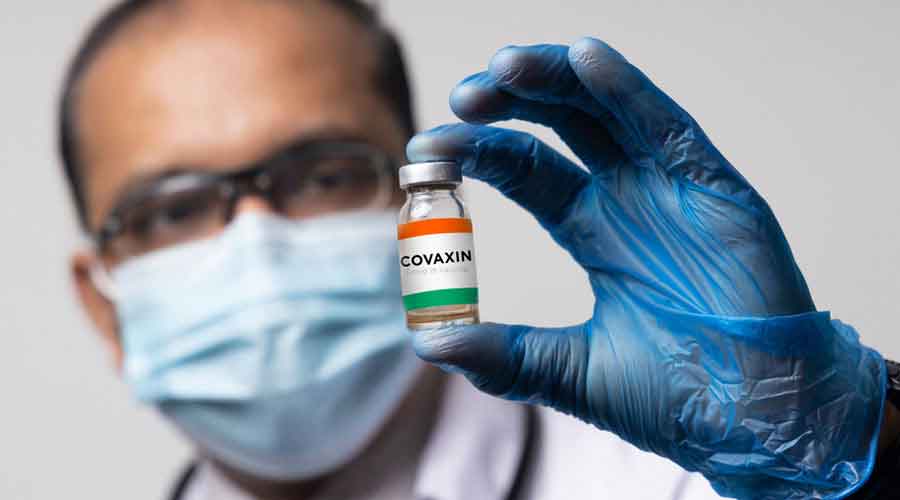When Cambodia, China’s closest ally in Southeast Asia, asked for Indian anti-Covid vaccines having received a free starter supply of one million Sinopharm doses, alarm bells rang in Beijing. In what has been seen as a battle for goodwill and influence, growing requests for Indian vaccines from nations as far off as Brazil and Cambodia did indicate India is ahead of China on this score. Beijing’s discomfort was writ large when its media trouble-shooter, Global Times, went on to accuse India of meddling in Bangladesh to stop trials of the Sinopharm vaccine.
With two million free doses of the India-made AstraZeneca vaccine helping Bangladesh begin its ambitious vaccination programme and another thirty million doses purchased by its Beximco conglomerate to reach Dhaka in phases, China is clearly receding from Bangladesh’s public imagination. Even virulently anti-India BNP politicians, who had railed against India-made vaccines by doubting both supply commitments and efficacy, are lining up to take the jab. The Bangladesh Nationalist Party leader, Amir Khasru Mahmud Chowdhury, scotched the party’s pitch against Indian vaccines when he told a television channel, “there can be no politics over the vaccine”.
With Air India charter flights landing in neighbouring countries like Sri Lanka and Seychelles, Maldives and Myanmar, with free gift packs of India-made vaccines, diplomats are ecstatic over what one described as ‘our finest hour’. The unmistakable thrill in New Delhi over India’s lead role in fighting Covid-19 globally was evident in a tweet by the prime minister, Narendra Modi: “Fast development of vaccine and its launch [in India] is an important landmark in our joint endeavour for a healthy and disease free world.” Modi had earlier said that India will soon be the ‘pharmacy of the world’; this promises business and credibility that can boost the country’s economy and diplomacy. Unlike the Chinese vaccines which have faced uncomfortable questions over efficacy in trials in Brazil and Indonesia, the world is not questioning the effectiveness of the Indian vaccines but asking whether it can actually produce enough — and quickly enough — to meet the global demand.
China is seen as a rising superpower, capable of taking on the United States of America militarily and economically; India has been seen, at best, as a “swing state” (How to Run the World, Parag Khanna), capable of influencing the power balance in Asia. Most military analysts did not give India much of a chance against a modernizing Chinese military. But the Indian army has stood its ground against the Chinese in the icy Himalayan heights twice in less than four years, first at Doklam in 2017 and now in Ladakh. That the People’s Liberation Army finally agreed to pull back to April 2020 positions in eastern Ladakh sends out unmistakable signals to the rest of the world (especially in India’s neighbourhood) that the Indian army has come a long way from 1962 and is capable of giving the PLA a bloody nose like the one it suffered in Vietnam in 1979. That the PLA has not come out well in military confrontations since 1962 will not be missed in Asia where many countries look to India as a future net security provider against an assertive China. The northern army commander, Lieutenant-General Y.K. Joshi, had a point when he said that China has gained nothing and lost its face in the Ladakh stand-off. India is closing the gap in terms of equipment, infrastructure and training with the PLA at some speed. Its presence in Quad, along with its ever-expanding strategic alliance with the US, France and other democracies, is surely a stronger deterrent against China.
Stealing the thunder both in vaccine diplomacy and the Himalayan stand-off has left India in a far better position in the neighbourhood. In Myanmar, demonstrators marched with placards saying ‘Myanmar Coup, Made in China’, forcing the Chinese embassy to express apprehension over the military takeover. India’s pitch for ‘orderly democratic transition’ in Myanmar, without undermining the improved military relations that are so important in New Delhi’s fight against northeastern insurgencies, was about striking the right balance. Even Pakistan, China’s ‘taller than mountain’ friend, had joined seminars on Covid-19 strategy hosted by New Delhi, and some in that country are asking Imran Khan to seek Indian, and not Chinese, vaccines. None will doubt China’s deeper pockets and technological prowess, but Covid-19 has been a leveller of sorts, leaving Beijing in a quandary and New Delhi with an edge at least in South and Southeast Asia.










